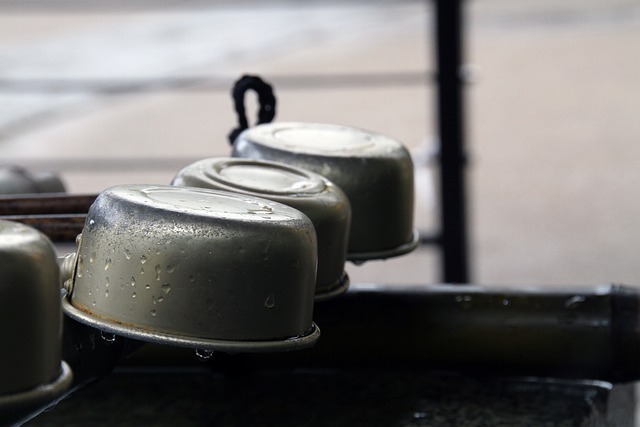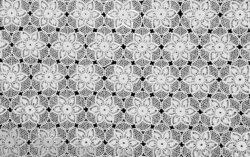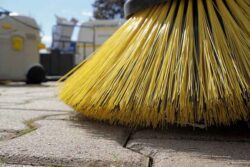
Cleaning is not just a chore; it’s a cultural dance that varies across the globe. Every culture has its unique way of keeping things tidy, and these cleaning rituals go beyond just sprucing up the living space. They are a reflection of traditions, beliefs, and a shared sense of community.
Imagine stepping into homes in Japan, where cleaning is like an elegant dance, or in India, where sweeping isn’t just about dust but also about clearing away bad vibes. Picture the orderly homes of Sweden, embracing the idea of “lagom,” or the lively community efforts in Ghana every Friday.
We’ll wander through the streets of Mexico, where New Year’s Eve involves tossing out negativity, and we’ll visit Iran, where a deep clean is the perfect way to welcome a fresh start for the Persian New Year. Cleaning, it turns out, is more than just a chore; it’s a window into the soul of a community. Join us on a journey around the world as we explore the diverse and fascinating cleaning rituals that make homes sparkle and hearts glow.
Here is our post on The Zen of Cleaning: Finding Mindfulness in Household Chores which you will not want to miss.
1. Japan: The Art of Zen Cleaning
1. Oosouji – Big Cleaning:
In Japan, the end of the year marks a grand cleaning ritual called Oosouji. Families come together to clean every nook and cranny of their homes. It’s not just about physical cleanliness; Oosouji is deeply rooted in the concept of spiritual purification. By cleaning away the old, they make space for good luck and positive energy in the coming year.
2. _Kintsugi – Embracing Imperfection:
Kintsugi, or the art of repairing broken pottery with gold lacquer, is a unique Japanese practice. It’s not exactly cleaning, but it’s a beautiful way of dealing with imperfections. Instead of discarding broken items, they are lovingly repaired, emphasizing that flaws can be transformed into something valuable and beautiful.
2. India: The Spiritual Sweep
1. Diwali Cleaning – A Festival of Light and Cleanliness:
Diwali, the festival of lights in India, is accompanied by a thorough cleaning of homes. It symbolizes the removal of darkness and the welcoming of prosperity and good fortune. From sweeping and scrubbing to decorating with vibrant colors, Diwali cleaning is a joyous and festive affair.
2. Cow Dung Flooring – An Ancient Tradition:
In some rural areas of India, particularly in Rajasthan, cow dung is used for floor coating. While it may sound unusual, this practice is deeply rooted in tradition. Cow dung is believed to have antibacterial properties, keeping homes clean and cool, especially during the scorching summer months.
See also our post on feng-and-a-clean-home-1
3. Sweden: Lagom – The Balanced Approach
1. Death Cleaning – Döstädning:
Sweden practices a unique form of cleaning known as Döstädning, or death cleaning. It involves decluttering and organizing possessions to make things easier for loved ones after one’s passing. It’s a practical and considerate way of handling possessions, emphasizing the Swedish concept of Lagom – finding balance in life.
2. Fredagsmys – Cozy Fridays:
Swedes also have a weekly cleaning tradition called Fredagsmys, or Cozy Fridays. Families collectively engage in a pre-weekend clean-up, ensuring that their homes are neat and cozy for the weekend. It’s a delightful way of coming together and preparing for some quality family time.
4. Mexico: Spiritual Sweeping
1. Sweeping Away Evil – Limpias:
In Mexican culture, especially in rural areas, there’s a practice known as Limpias. It involves sweeping a person’s body with herbs or flowers to remove negative energy and promote spiritual cleansing. It’s a unique fusion of physical and spiritual cleaning, demonstrating the deep connection between the two.
2. Day of the Dead – Honoring Ancestors:
During the Day of the Dead, families clean and decorate the graves of their loved ones. This act of cleaning is not just about maintaining the resting place but is a symbolic gesture of respect and remembrance. It’s a beautiful blend of cleaning, tradition, and honoring the departed.
See also our post on Commercial Aircraft Interior Cleaning: Elevating Passenger Comfort
5. Morocco: The Scented Sweep
1. Amber Cleaning – Beldi Soap:
In Morocco, cleaning is often a sensory experience. Beldi soap, made from olives, is a traditional and luxurious way of cleansing both the body and the home. The rich, aromatic scent of this soap transforms cleaning into a ritualistic and enjoyable activity.
2. Rug Shaking – Symbol of Purity:
In Moroccan households, shaking out rugs is not just about getting rid of dust; it’s a symbolic act of purifying the space. Families take their rugs outside, often during special occasions, and vigorously shake them to remove any negativity that may have settled in.
6. China: The Feng Shui Sweep
1. Chinese New Year Cleaning – Out with the Old, In with the New:
Just before Chinese New Year, homes undergo a thorough cleaning. It’s a way of sweeping away the old and making space for good luck and prosperity in the coming year. Sweeping is done from the inside out, symbolizing the removal of bad luck and the attraction of positive energy.
2. Feng Shui – Harmonizing Spaces:
Feng Shui, an ancient Chinese practice, involves arranging and cleaning spaces to promote balance and positive energy flow. It’s not just about cleanliness but also about the arrangement of furniture and objects to create a harmonious environment.
7. Russia: Spring Cleaning and Symbolic Sweeping
In Russia, the arrival of spring signals a grand cleaning spree known as “General Cleaning Week.” Families open windows wide to let in the fresh air and sweep out the winter dust. Symbolically, the act of sweeping represents sweeping away the old and welcoming the new. It’s a communal effort, and the shared experience fosters a sense of unity and renewal.
8. Ghana: Rituals of Unity and Community
In Ghana, cleaning is not just an individual or family affair; it’s a community event. Every Friday, communities come together for “National Sanitation Day,” a government initiative encouraging citizens to clean their surroundings. This collective effort fosters a sense of unity and responsibility for the environment, reinforcing the idea that a clean community is a healthy community.
9. Iran: The Persian New Year and “Khooneh Tekouni”
In Iran, the Persian New Year, or “Nowruz,” marks a time of deep cleaning known as “Khooneh Tekouni.” Families engage in a thorough cleansing of their homes in preparation for the new year, aiming to welcome positive energy. This ritual includes washing curtains, carpets, and even the family pets, symbolizing a fresh start and renewed vitality.
Here is our post on Cleaning Routines for Different Personality Types
Conclusion
Cleaning around the world is like taking a magical journey into different cultures and traditions. We’ve learned that cleaning isn’t just about getting rid of dust and mess; it’s a special way each place expresses its beliefs and values.
In Japan, cleaning is an art, a way of saying goodbye to the old and welcoming the new. In India, it’s like a spiritual dance, sweeping away bad vibes to make room for good ones. Swedes keep things balanced, not too much or too little, following the lagom way of life. Morocco takes cleaning to a whole new level, connecting it to both tradition and spirituality. Russia celebrates spring with a big cleaning party, saying goodbye to winter dust. In Ghana, cleaning is a community affair, showing that when everyone pitches in, the whole neighborhood shines. Mexico has a special New Year’s Eve ritual, tossing out negative vibes to make room for good luck. In Iran, they give their homes a deep clean for the Persian New Year, making everything sparkle for a fresh start.
So, what do all these cleaning rituals tell us? They go beyond just scrubbing and sweeping; they tell stories of beliefs, unity, and respect for where we live. As we peek into these different ways of cleaning, we realize that cleanliness isn’t just about a clean house – it’s about the heart and soul of each culture, making the world a colorful and tidy place. Happy cleaning, wherever you are!







